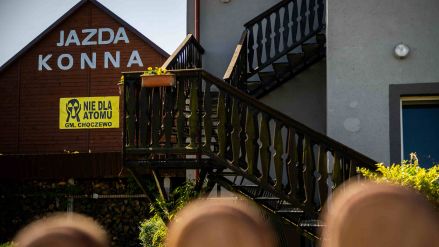And she points out with fascination that behind every mystery discovered by science about the functioning of the human brain, there are others that continue to reveal more great mysteries. The school does not hide its pride in such a student - and that is very good news. In a photo in the local media, the class teacher shows the diploma with satisfaction and emphasises that Julia is an inspiration to her classmates.
And why is this good news? Because it is not at all obvious that schools are happy with such students! Just today, as I write this article, I met for coffee with a former student from the journalism department, after a good high school in a town - not a province - very far from the capital. There were two of them in that group from that high school, and they were surprisingly well-read, cultured, erudite, and stood out from the group, which, by the way, did not lack young Varsovians.
"At our school there was no emphasis on seeking new challenges, no pressure to broaden one's horizons, although yes, there were Olympiads, but everything was standard, with no support for crazy ideas," she says today, when I tell her about an 18-year-old from Słupsk. Even her teachers at the time were surprised that she was going to Warsaw to study, so far away, while she had several very good universities nearby, two or three hours by train. And that was only six years ago, not some distant era.
What do we not know?
A Harvard boy who uses drones to deliver medicine to remote areas of The Gambia, Jan Kryca bluntly says that gifted students from Poland need to learn to present their achievements, their ideas and their intentions, because they can't do that:
"When you apply to a foreign university," he says in the aforementioned programme, "you need to find a good mentor in high school who will write a super letter of recommendation. But a real one, not that you write it and he signs everything for you because he can't or doesn't want to do it himself. He needs to write why this university will benefit from you. Secondly, you need to show your successes in context: if you won a maths competition, describe it, because in the US nobody knows what a 'kangaroo' is - so write where it was, how many people competed, the size of the competition and the scale of the tasks to be solved. Because we have super impressive high school students, but we don't have ones who can write about themselves and apply to Harvard. You have to make yourself interesting, describe the story of your interests, passions and successes in a way that makes it interesting to the reader, i.e. the one who decides on the invitation to the university. You need to write clearly about the value of your idea and why you are the one to invest in.
Jan Kryca goes on to tell the story of a seminar he got into at Harvard where, for a whole semester, students, under the guidance of a professor, exchange their experiences of the companies they are trying to run. The seminar is besieged, and the professor picks twenty-thirty and they come together for a semester to talk. The twenty-something from Harvard thinks this is his most important experience from the university!
But our students - in the basic majority - are still afraid of such international challenges. In fact, they don't even take the domestic ones to study for a semester in Krakow and not just for three years in Warsaw as part of the Most programmes. Our graduates do not respond at all in great numbers to invitations from American universities to continue their studies there and to do their PhDs - even though young people from all over the world, not just the Chinese, still come to American universities in large numbers. In spite of Erasmus programmes, which nevertheless force them to confront their knowledge and language skills, our students still prefer to sit down at a well-known university and do not want to check out what it was like at Purdue University or Yale. Will the new generations of high school students and graduates go there with a bigger number? Will teachers, including academics, those of the new generation, themselves after foreign scholarships and grants, begin to encourage young people to take on unknown challenges ? There are certainly no fewer talents and outstanding minds than there used to be; after all, they now have more opportunities. Will there finally be weather for geniuses?
– Barbara Sułek-Kowalska
TVP WEEKLY. Editorial team and jornalists
– Translated by Tomasz Krzyżanowski

 SIGN UP TO OUR PAGE
SIGN UP TO OUR PAGE






